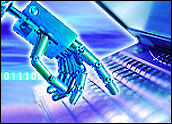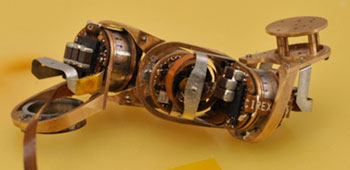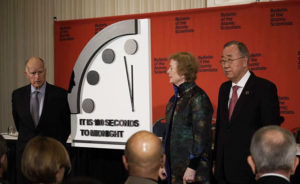
Researchers at MIT’s Center for Bits and Atoms have created milli-motein — a manifestation of raw digital data that could create transformable robots. However, instead of pop-culture robots that can transform into giant cars or airplanes, these could result in material changes that might one day transform the world.

The project, led by Neil Gershenfeld and funded by a grant from DARPA, is still in its early days. It isn’t so much aimed at solving a problem as it is exploring multi-motein’s potential usefulness.
“In the world field of programmable matter, this is very much like the early days of computers, where much of the research is so general that the common thinking is that there must be things that this is useful for,” said Ara Knaian, Ph.D., of MIT’s Center for Bits and Atoms. “Part of the research that we’re now involved with is to find that killer application for this.”
Transformable Matter
The technology that the team has devised can’t turn into a car — at least at present — but it can transform into complex shapes.
“In fact, it can transform into an infinite variety of shapes,” Knaian told TechNewsWorld.
Additionally the design is scalable, so robots could be built in a variety of shapes and sizes. The next step is to make milli-motein strong enough to be durable in its transformed shape. That raises the possibility of a real transformation of modern life.
“This is a significant step towards synthetic biology,” said James Canton, Ph.D., of the Institute for Global Futures. “What this group has done is take the first step in the convergence of multiple technologies including reconfigurable robotics, 3D printing, synthetic biology and programmable matter. Several revolutions in technological development are coming together through this project.”
“We’ve already had breakthroughs in 3D printing for inorganic material, and recently there have been some breakthroughs from Wake Forest in organic printing, but this goes a step forward and beyond that,” Canton told TechNewsWorld.
Living Robots
This could very well be the first step toward robots mimicking nature and living things. More importantly, what is being done now on the millimeter scale could eventually be taken down to the nano-level.
It wouldn’t just mean robots could be “alive” — it could allow material to self-replicate and adapt.
“It could be where bridges react when there is a danger,” said Canton, “or a refrigerator that could find a way of making food taste better.”
This could lead to a rethinking of the world as we know it.
“While everything today could eventually have its own IP address, the more dramatic revolution is one of self-evolving systems,” Canton suggested. “Those systems could transform transportation, energy and even healthcare. This is a very exciting development, but it means a complete rethink — a massive new rethink — of the industrial structure of the world.”
Transforming the Near Term
While milli-motein could be a game changer of epic proportions, it’s not likely to change our lives in the foreseeable future. However, that doesn’t mean we won’t be seeing developments.
Near-term applications could include “using the motors as control surface actuators in electric airplanes, searching for survivors in disaster rubble, programmable shape endoscope tip/injectable medical robots [and] construction and/or exploration in outer space,” said MIT’s Knaian.
Of course, the long term is where it gets really exciting and where that rethinking will be required.
“This could include shape-changing material that can form needed objects,” added Knian, “thus reducing our environmental impact by reducing the need for mining, manufacturing, transportation and even waste disposal.”





















































